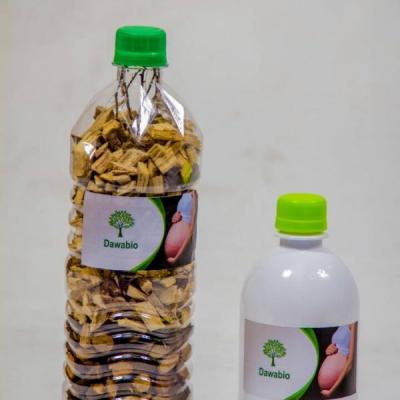- Home
- ovarian cyst natural cure
ovarian cyst natural cure
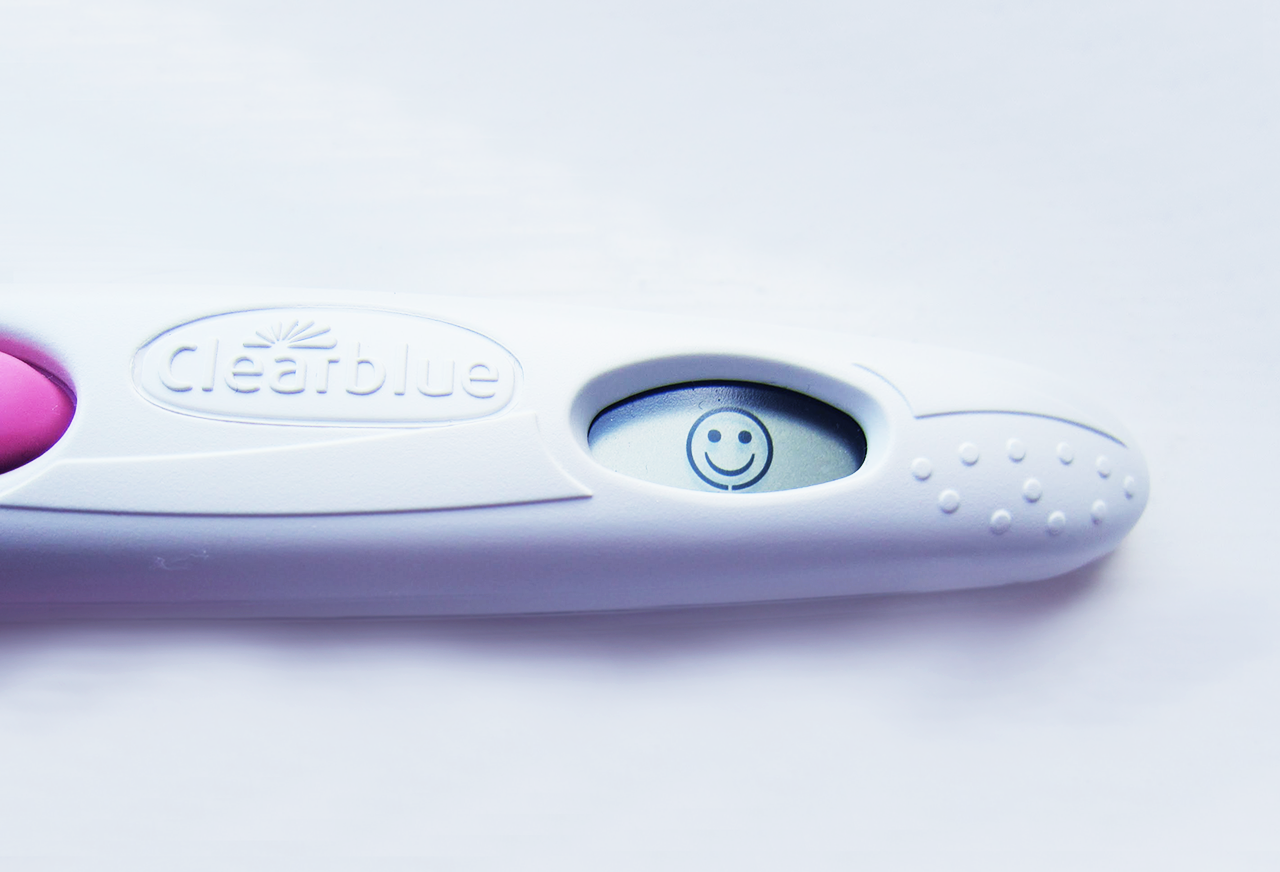
Natural Remedy for Combating Anovulation
The absence of ovulation in the menstrual cycle means that the egg has not been released from the ovary. For women trying to conceive, this means that in a given cycle, they have no chance of getting pregnant.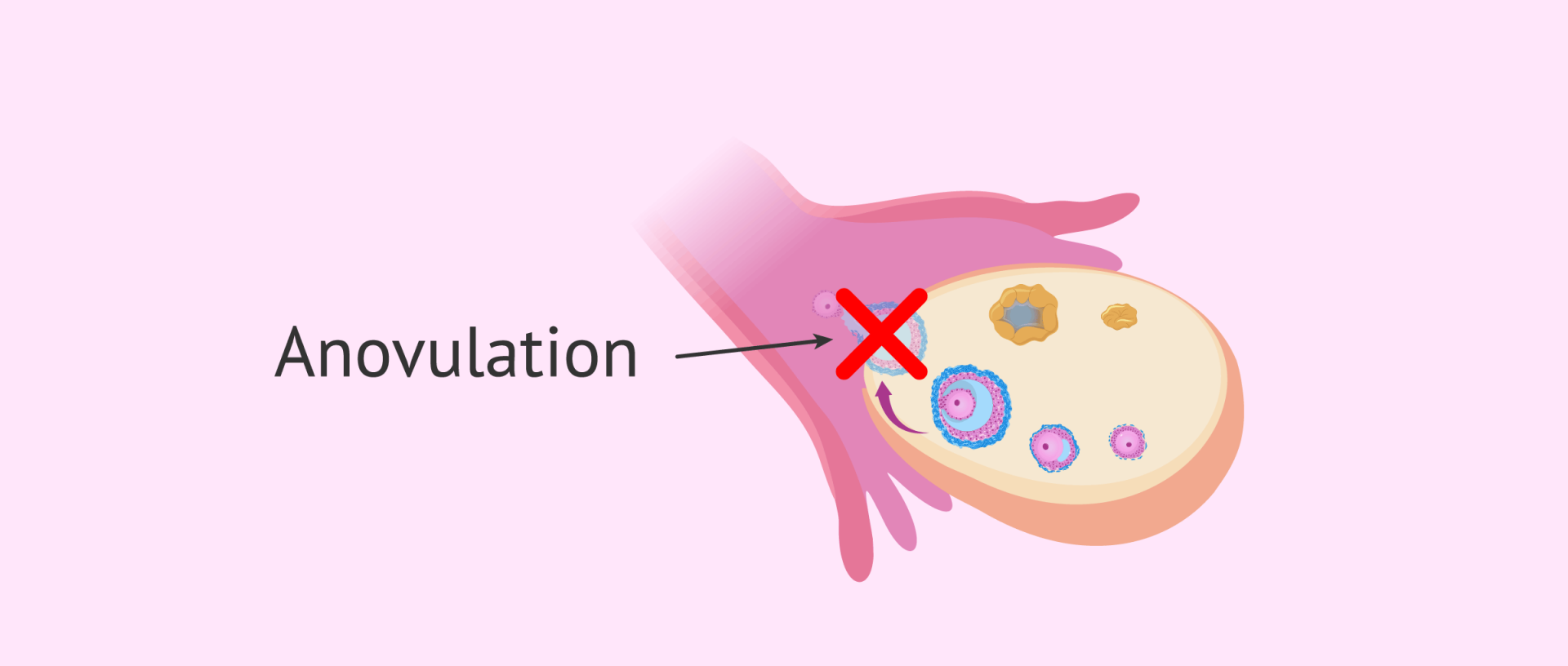
If you're trying to have a baby but suspect you're not ovulating, you've come to the right place. We have a highly effective natural treatment to cure anovulation and help you get pregnant quickly and easily.
Natural Treatment for Absence of Ovulation
The natural treatment we offer to restore your ovulation is entirely composed of herbal teas. Its goal is to regulate your cycle and enable you to become pregnant. Unlike other medications, this natural remedy is entirely made from plants. It stimulates ovulation and restores the hormonal system naturally.
It acts as a potent uterine tonic during ovulation and has a constructive effect on reproductive hormones. Thus, the herbal tea contributes to improving estrogenic activity and also helps increase low levels of progesterone.
This is a natural and effective remedy that will allow you to ovulate again. The use of natural plants generally yields positive results and significantly contributes to triggering ovulation. Often, it is necessary to explore alternative solutions provided by nature.
Click on the image below to obtain it: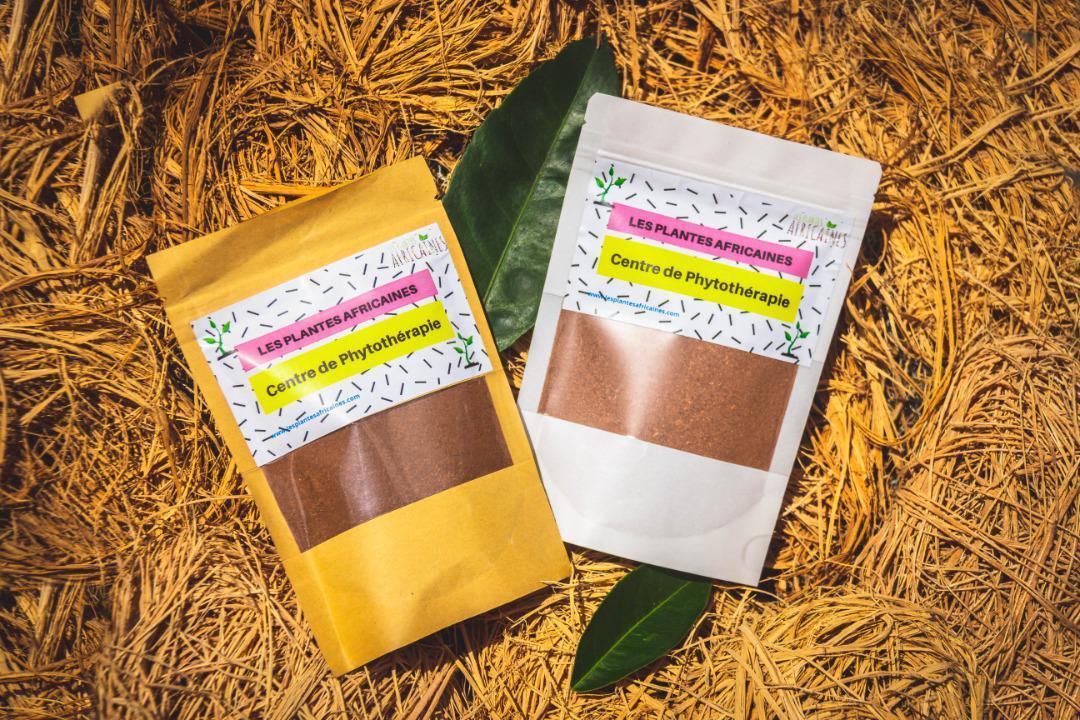
Order it now and start your natural treatment for anovulation as soon as possible. We provide support throughout the duration of your treatment. To contact us, click the WhatsApp button in the bottom right corner of the screen or call us at +229 66 23 89 56.
We are represented in all African countries and are active in Cameroon, Côte d'Ivoire, Mali, Senegal, Burkina Faso, Togo, Kenya, Nigeria, Gabon, the Central African Republic, Benin, Chad, South Africa, Rwanda, Botswana, Uganda, Congo-Brazzaville, and Kinshasa. So rest assured that you will receive your products immediately after ordering.
Delivery is free worldwide.
NATURAL REMEDY TO NATURALLY BOOST YOUR FERTILITY
- Reduce Caffeine Intake
During the process of trying to conceive, having a cup of coffee every day can reduce your chances of getting pregnant. Experts say that caffeine can reduce the activity of the fallopian tube muscles, which transport eggs from the ovaries.
- Stay Hydrated
Fertility expert Zita West has stated, "If you don't drink enough water, the reproductive system will lose energy, affecting vital organs that we need." Mineral water can smooth the blood supply to the brain, meaning it can strengthen the uterine lining because if you're dehydrated, cervical fluid will be slower.
- Avoid Cigarettes, Drugs, and Alcohol
Women who smoke, use drugs, and consume alcohol may reduce the number of sperm and increase abnormal sperm.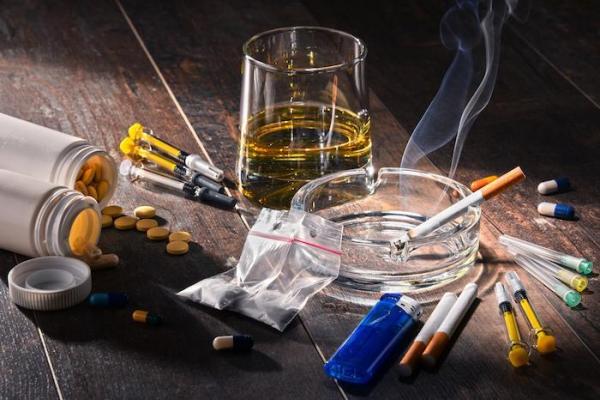
- Consume More Milk
Drink at least one glass of milk a day to reduce the risk of infertility. According to research from Harvard University in America, milk fats help the ovaries function properly.
- Protein and Vitamin E Intake
The main benefits of healthy protein and vitamin E for an expectant mother's body are to maintain hormone stability, which regulates fertility. This is why the intake of protein and vitamin E is important for getting pregnant quickly.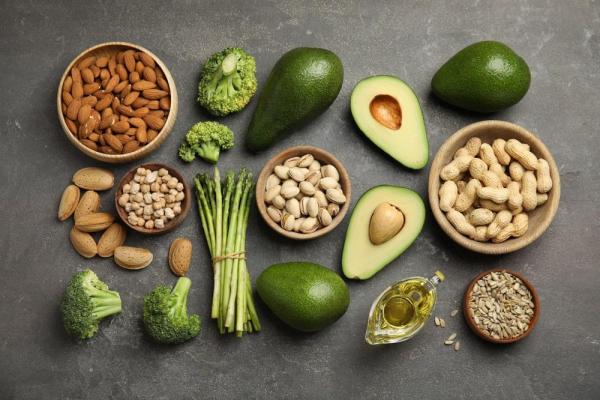
We offer a highly effective natural remedy to cure anovulation and help you become pregnant quickly and easily.
Order it now and start your natural treatment for anovulation as soon as possible. We provide support throughout the duration of your treatment. To contact us, click the WhatsApp button in the bottom right corner of the screen or call us at +229 66 23 89 56.
We are represented in all African countries and are active in Cameroon, Côte d'Ivoire, Mali, Senegal, Burkina Faso, Togo, Kenya, Nigeria, Gabon, the Central African Republic, Benin, Chad, South Africa, Rwanda, Botswana, Uganda, Congo-Brazzaville, and Kinshasa. So rest assured that you will receive your products immediately after ordering.
Delivery is free worldwide.
03 Recipes for Improved Fertility
- Garlic and Ovulation
The aromatic tuber gives food a unique aroma, has an antibacterial effect, and keeps the blood, heart, and vessels healthy. Moreover, garlic has been known to promote fertility for thousands of years.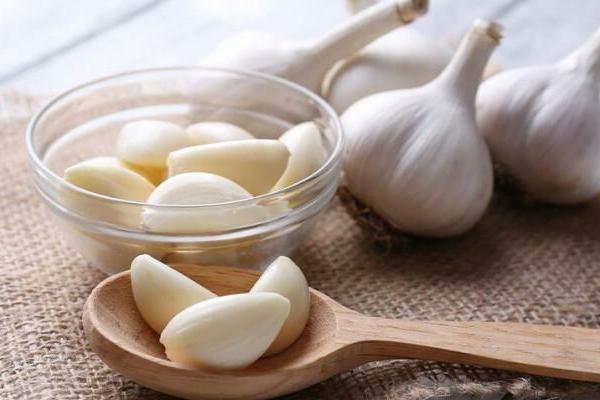
- Pumpkin Seeds
Zinc is an important element for reproduction and is found in large quantities in pumpkin seeds. Zinc helps in the production of new cells, hormonal balance, and the maturation of healthy eggs. The high proportion of vitamin E also protects eggs and is effective against free radicals in the body.
Vitamin E, combined with selenium also present in pumpkin seeds, helps build a healthy uterine lining. Another advantage of pumpkin seeds is that they are the best plant source of omega-3 fatty acids and, with their proportion of omega-6 fatty acids, keeps the outer skin of the egg oily intact.
Usage: Snack on pumpkin seeds instead of candies, mix them in salads, and sprinkle them on bread.
Pumpkin Seed Spread Recipe
* 250g pumpkin seeds
* 100g butter, room temperature
* 1 teaspoon of oil
* Salt, pepper
* Finely chopped parsley
Preparation:
* Roast the pumpkin seeds carefully in a pan, stirring.
* Grind the roasted pumpkin seeds finely in a blender.
* Mix with butter.
* Incorporate the parsley.
* Store in a cool place and use as a spread.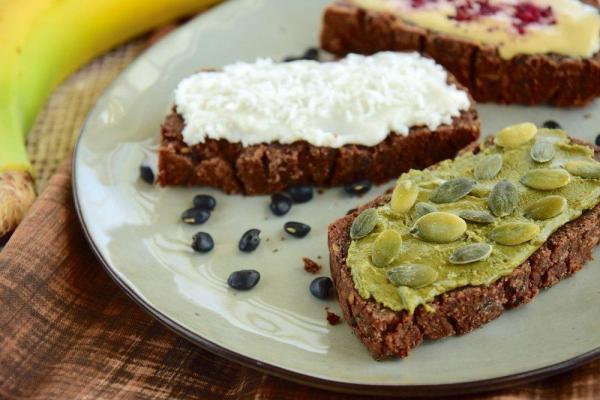
- Lemons
Although lemons have a bitter taste, they maintain a balanced acid-base balance in the body - an essential condition for effective hormones and a welcoming environment for sperm. Lemons are important not only for women who want to become pregnant but also for their partners. The high vitamin C content acts as an antioxidant and protects sperm and eggs from toxins.
Usage: In dressings (better than vinegar!), in drinks, etc.
Lemon Mousse Recipe
* 3 lemons, organic!
* 100g plain yogurt
* 100g cream cheese
* 2 teaspoons of ground gelatin
Preparation:
* Grate the zest of one lemon.
* Squeeze the juice from the other two lemons and collect it.
* Mix the cream cheese and sugar.
* Stir in yogurt, lemon juice, and lemon zest.
* Prepare the gelatin according to the instructions on the package and add it to the mixture.
* Chill the mousse for 2 hours.
We offer a highly effective natural remedy to cure anovulation and help you become pregnant quickly and easily.
Order it now and start your natural treatment for anovulation as soon as possible. We provide support throughout the duration of your treatment. To contact us, click the WhatsApp button in the bottom right corner of the screen or call us at +229 66 23 89 56.
We are represented in all African countries and are active in Cameroon, Côte d'Ivoire, Mali, Senegal, Burkina Faso, Togo, Kenya, Nigeria, Gabon, the Central African Republic, Benin, Chad, South Africa, Rwanda, Botswana, Uganda, Congo-Brazzaville, and Kinshasa. So rest assured that you will receive your products immediately after ordering.
Delivery is free worldwide.
Other Foods That Can Promote Female Fertility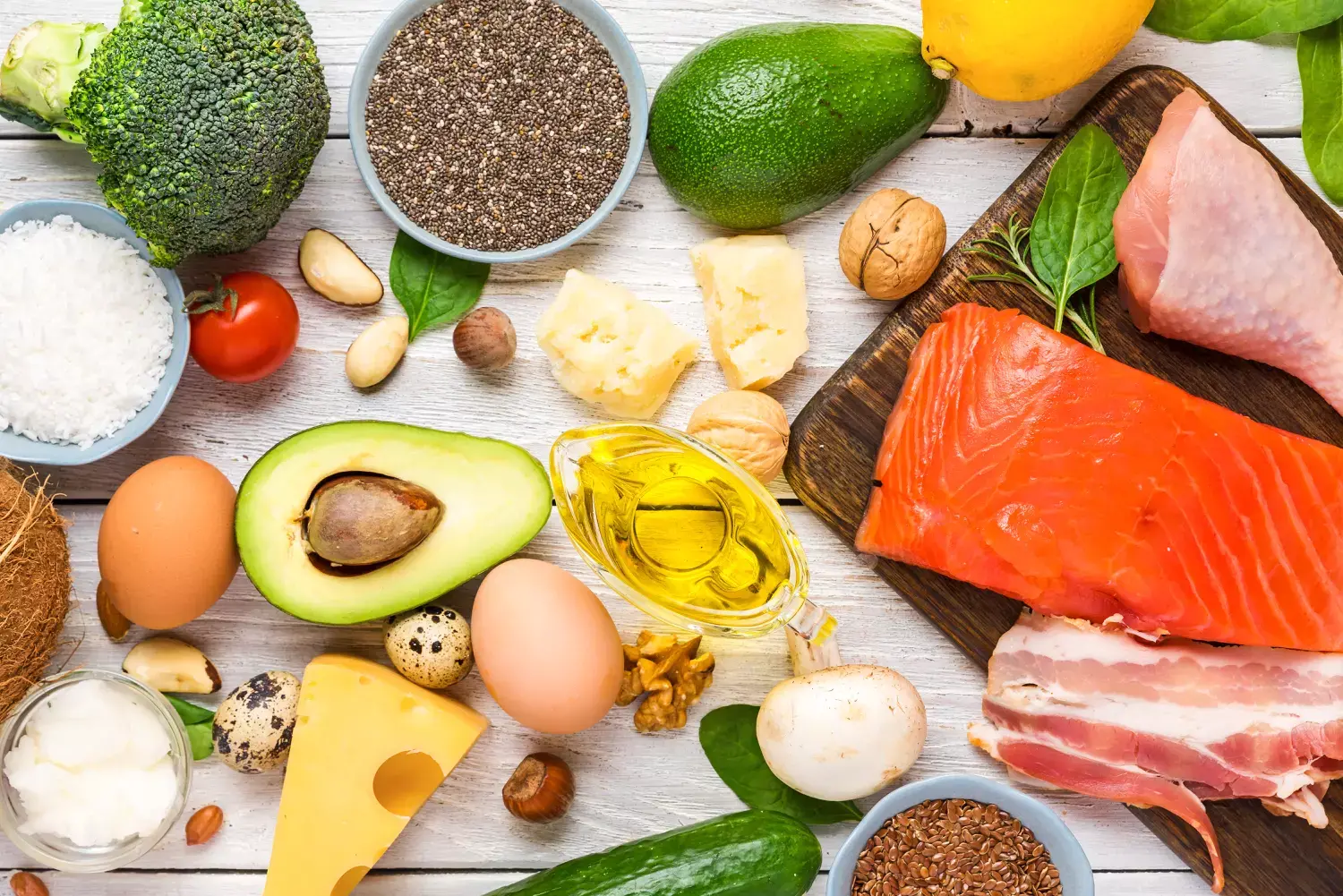
Female fertility can be influenced by various factors, including diet. While no food guarantees fertility, a balanced and nutritious diet can contribute to improving reproductive health. Here are some foods and nutrients often associated with promoting female fertility:
- Folic Acid: Foods rich in folic acid, such as leafy green vegetables (spinach, kale), legumes (chickpeas, lentils), citrus fruits, and fortified cereals, can help reduce the risk of certain birth defects in the future baby.
- Omega-3 Fatty Acids: Omega-3 fatty acids found in fatty fish (salmon, mackerel, sardines), nuts, flaxseeds, and fish oil can contribute to hormonal balance and reproductive health.
- Lean Proteins: Sources of lean protein, such as chicken, turkey, fish, legumes, and tofu, provide essential amino acids for egg development and hormone regulation.
- Iron: Iron in lean red meat, spinach, lentils, and beans can help prevent anemia, which can affect fertility.
- Antioxidants: Foods rich in antioxidants, like colorful fruits and vegetables (berries, carrots, bell peppers), help combat oxidative stress that can harm egg quality.
- Calcium-Rich Dairy: Calcium is important for hormone regulation, and low-fat dairy products like yogurt and milk can be good sources.
- Vitamin D-Rich Foods: Vitamin D is essential for reproductive health and can be obtained from fatty fish, egg yolks, and moderate sun exposure.
- Low Glycemic Index Foods: Low-glycemic-index foods like whole grains, non-starchy vegetables, and legumes can help stabilize blood sugar, which is important for ovulation.
- Zinc: Zinc is an important nutrient for hormone production and reproductive health. It can be found in seafood, lean red meat, nuts, and seeds.
It's important to note that diet alone does not guarantee fertility, and many other factors can influence the ability to conceive. If you have concerns about your fertility or are trying to conceive, it's recommended to consult a healthcare professional, such as a gynecologist or fertility specialist, for personalized advice and appropriate recommendations.
We offer a highly effective natural remedy to cure anovulation and help you become pregnant quickly and easily.
Order it now and start your natural treatment for anovulation as soon as possible. We provide support throughout the duration of your treatment. To contact us, click the WhatsApp button in the bottom right corner of the screen or call us at +229 66 23 89 56.
We are represented in all African countries and are active in Cameroon, Côte d'Ivoire, Mali, Senegal, Burkina Faso, Togo, Kenya, Nigeria, Gabon, the Central African Republic, Benin, Chad, South Africa, Rwanda, Botswana, Uganda, Congo-Brazzaville, and Kinshasa. So rest assured that you will receive your products immediately after ordering.
Delivery is free worldwide.
When Does Anovulation Occur?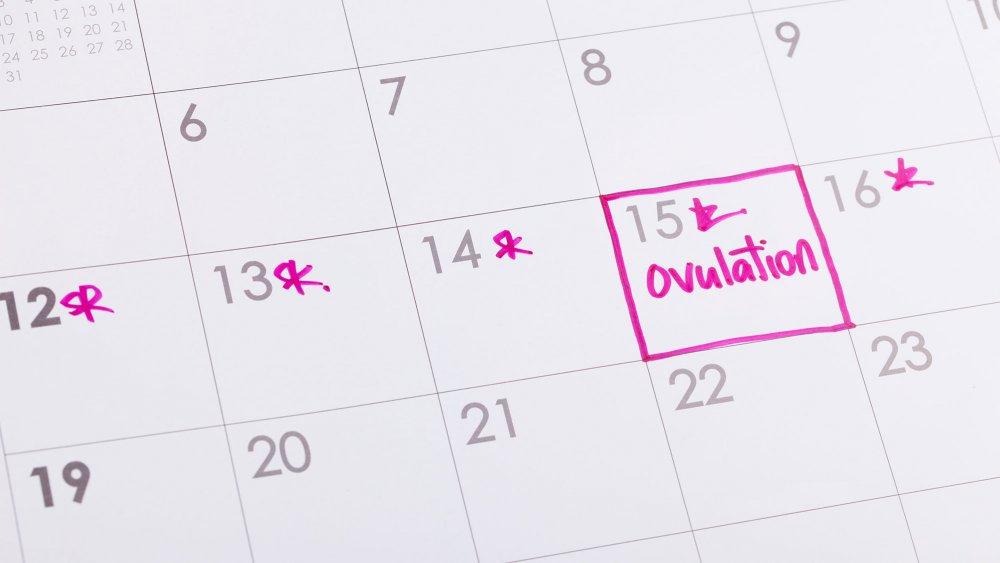
Anovulation occurs when the ovary does not release an egg (ovum) during a menstrual cycle. Anovulation can occur at different times in a woman's life for various reasons. Here are some of the periods when anovulation can occur:
- During Puberty: When girls reach puberty, their menstrual cycles can be irregular for a while as their reproductive system adjusts. Anovulation can occasionally occur during this stage.
- During Perimenopause: Perimenopause is the period leading up to menopause, typically starting in the forties. Hormonal fluctuations can lead to irregular menstrual cycles and periods of anovulation.
- Due to Hormonal Disorders: Hormonal disorders such as polycystic ovary syndrome (PCOS) or hypothyroidism can cause chronic or recurrent anovulation.
- Due to Stress or Excessive Weight Loss: Chronic stress, significant weight loss, or excessive exercise can disrupt hormonal balance and lead to temporary anovulation.
- Due to Taking Certain Medications: Some medications, like oral contraceptives, can temporarily suppress ovulation. When a woman stops taking these medications, there may be a period of transient anovulation.
- Due to Pituitary Gland Disorders: Abnormalities in the pituitary gland, which regulates reproductive hormones, can lead to anovulation.
- Due to Eating Disorders: Eating disorders like anorexia or bulimia can disrupt hormones and result in anovulation.
It's important to note that anovulation can make conception more challenging because ovulation is necessary for a woman to become pregnant. If a woman has concerns about anovulation or is experiencing difficulty conceiving, it's recommended to consult a healthcare professional, such as a gynecologist or fertility specialist, to determine the underlying cause and consider treatment options if necessary.
We offer a highly effective natural remedy to cure anovulation and help you become pregnant quickly and easily.
Order it now and start your natural treatment for anovulation as soon as possible. We provide support throughout the duration of your treatment. To contact us, click the WhatsApp button in the bottom right corner of the screen or call us at +229 66 23 89 56.
We are represented in all African countries and are active in Cameroon, Côte d'Ivoire, Mali, Senegal, Burkina Faso, Togo, Kenya, Nigeria, Gabon, the Central African Republic, Benin, Chad, South Africa, Rwanda, Botswana, Uganda, Congo-Brazzaville, and Kinshasa. So rest assured that you will receive your products immediately after ordering.
Delivery is free worldwide.
Anovulation and Menstruation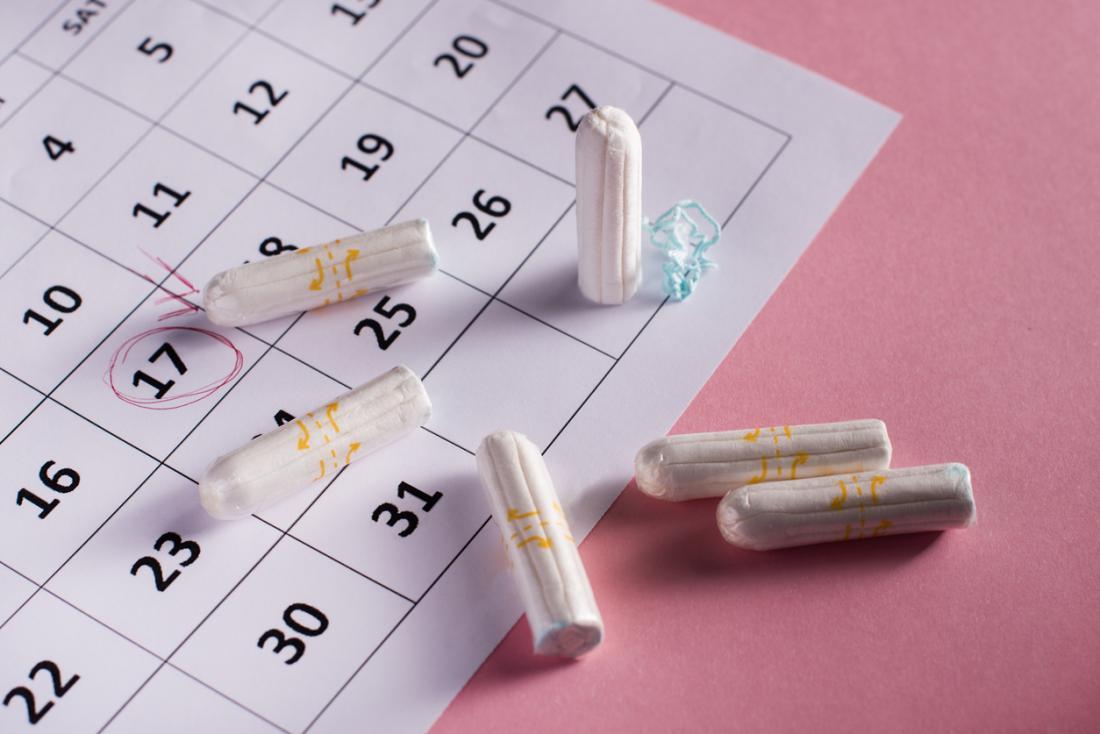
Anovulation, which occurs when ovulation does not take place during a menstrual cycle, can significantly impact a woman's periods. Here's how anovulation can influence menstruation:
- Menstrual Irregularity: Anovulation is often associated with irregular menstrual cycles. This means that periods can be unpredictable in terms of duration and frequency. A woman may have very short, very long, or even miss her periods for several months.
- Heavy or Light Bleeding: When ovulation doesn't occur, the balance of hormones, especially estrogen and progesterone, can be disrupted. This can lead to heavy or light menstrual bleeding, sometimes accompanied by spotting between periods.
- Premenstrual Syndrome (PMS): Some anovulatory women may still experience PMS symptoms even if their cycles are irregular. PMS symptoms can vary from person to person but often include mood swings, abdominal pain, breast tenderness, and other symptoms.
- Infertility: Anovulation is a common cause of infertility because ovulation is necessary for conception. If ovulation doesn't occur, the release of a fertilizable egg also doesn't happen, making natural conception difficult.
It's important to note that anovulation can be caused by various factors, including stress, hormonal disorders, polycystic ovary syndrome (PCOS), age, and other underlying medical issues. If a woman experiences persistent anovulation or severe menstrual problems, it's recommended to consult a healthcare professional, such as a gynecologist or fertility specialist, to determine the underlying cause and discuss appropriate treatment options.
We offer a highly effective natural remedy to cure anovulation and help you become pregnant quickly and easily.
Order it now and start your natural treatment for anovulation as soon as possible. We provide support throughout the duration of your treatment. To contact us, click the WhatsApp button in the bottom right corner of the screen or call us at +229 66 23 89 56.
We are represented in all African countries and are active in Cameroon, Côte d'Ivoire, Mali, Senegal, Burkina Faso, Togo, Kenya, Nigeria, Gabon, the Central African Republic, Benin, Chad, South Africa, Rwanda, Botswana, Uganda, Congo-Brazzaville, and Kinshasa. So rest assured that you will receive your products immediately after ordering.
Delivery is free worldwide.
How to Recognize Anovulation?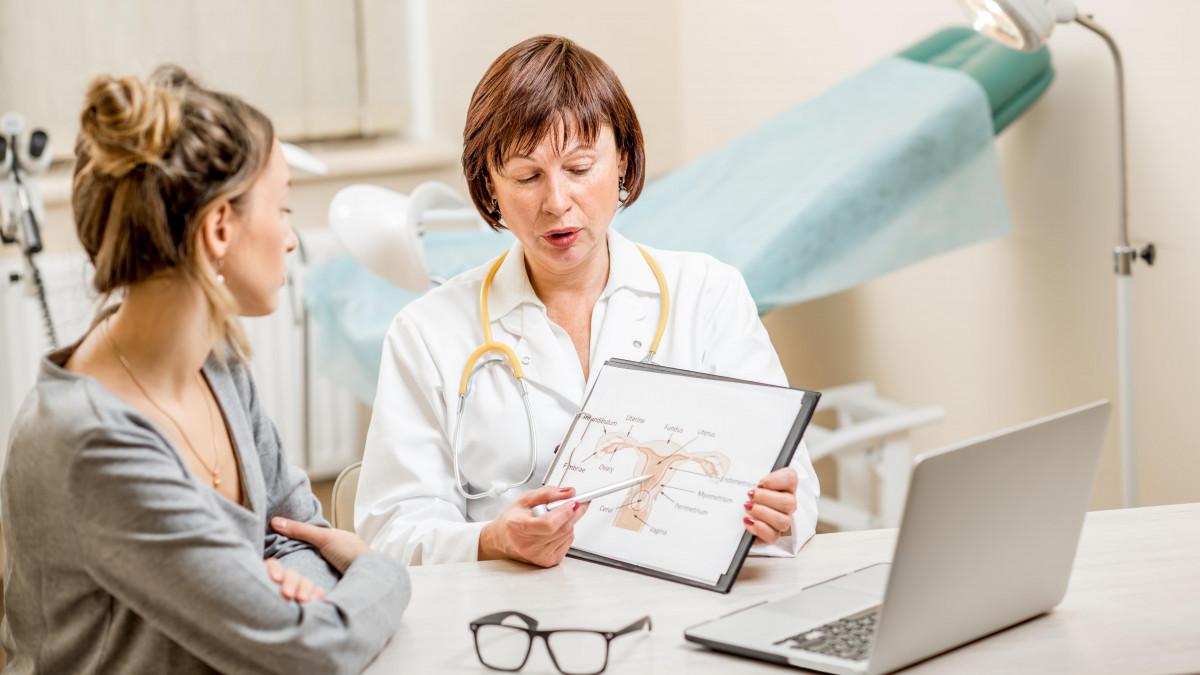
Recognizing anovulation can be a challenge because symptoms can vary from person to person, and occasional anovulatory cycles can occur even in women who typically have regular cycles. However, here are some signs and symptoms that may suggest anovulation:
- Irregular Menstrual Cycles: One of the most common indications of anovulation is irregular menstrual cycles. If your periods are very short, very long, or if you miss your periods for several months, it may indicate the absence of ovulation.
- PMS Symptoms Without Periods: Some anovulatory women may still experience PMS symptoms, such as mood changes, abdominal pain, breast tenderness, even if their cycles are irregular or absent.
- Inconsistent Cervical Mucus: When a woman ovulates, the texture of her cervical mucus changes to become clearer, more slippery, and more stretchy. If you don't notice these changes in your cervical mucus throughout your cycle, it may suggest anovulation.
- Negative Ovulation Tests: Home ovulation tests typically measure the presence of luteinizing hormone (LH) in urine, which increases before ovulation. If you regularly perform ovulation tests, and they are consistently negative, it may indicate anovulation.
- Inconsistent Basal Body Temperature (BBT) Chart: Some women use the Basal Body Temperature (BBT) chart to track their ovulation. In cases of anovulation, the BBT chart may show erratic fluctuations in basal body temperature instead of the typical rise after ovulation.
- Lack of Peak Cervical Mucus: The absence of peak fertile cervical mucus as part of the cervical mucus method may indicate anovulation.
It's important to note that the cause of anovulation can vary from woman to woman, and in some cases, it may be multifactorial. If you suspect you're experiencing anovulation or have concerns about your menstrual cycle, it's recommended to consult a healthcare professional, such as a gynecologist or a fertility specialist, for an accurate diagnosis and discussion of appropriate treatment options.
We offer a highly effective natural remedy to cure anovulation and help you become pregnant quickly and easily.
Order it now and start your natural treatment for anovulation as soon as possible. We provide support throughout the duration of your treatment. To contact us, click the WhatsApp button in the bottom right corner of the screen or call us at +229 66 23 89 56.
We are represented in all African countries and are active in Cameroon, Côte d'Ivoire, Mali, Senegal, Burkina Faso, Togo, Kenya, Nigeria, Gabon, the Central African Republic, Benin, Chad, South Africa, Rwanda, Botswana, Uganda, Congo-Brazzaville, and Kinshasa. So rest assured that you will receive your products immediately after ordering.
Delivery is free worldwide.
Causes of Anovulation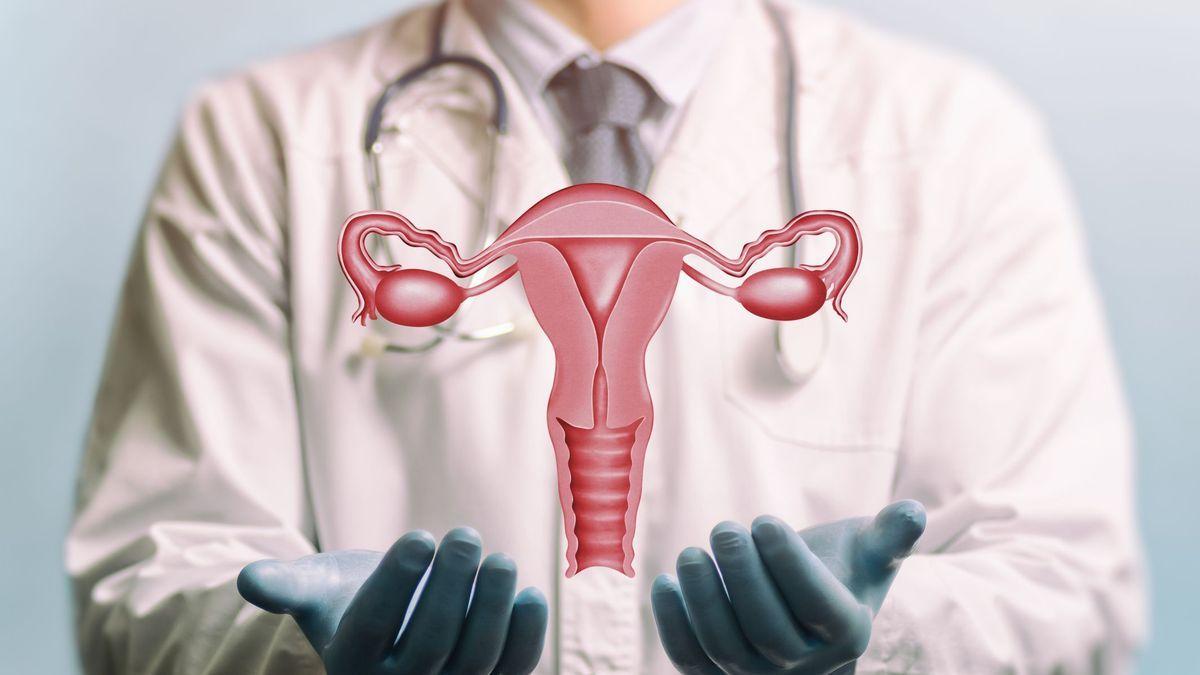
Anovulation, the absence of ovulation during a menstrual cycle, can be caused by various factors. Here are some common causes of anovulation:
- Polycystic Ovary Syndrome (PCOS): PCOS is one of the most common causes of anovulation in reproductive-aged women. It is characterized by ovaries containing many small follicles, often detected by ultrasound, and hormonal imbalances, including an excess of androgens (male hormones).
- Stress: Chronic stress can disrupt the hypothalamic-pituitary-ovarian axis, which regulates reproductive hormones, leading to temporary anovulation.
- Thyroid Disorders: Thyroid disorders, such as hypothyroidism (underactive thyroid) or hyperthyroidism (overactive thyroid), can affect ovarian function and cause anovulation.
- Excess or Insufficient Body Weight: Extreme body weight, whether it's too high or too low, can disrupt ovulation. Obese or underweight women have an increased risk of anovulation.
- Hyperprolactinemia: Hyperprolactinemia is a condition characterized by high levels of the hormone prolactin in the blood, which can interfere with ovulation.
- Tumors or Cysts: Ovarian tumors or cysts can disrupt normal ovarian function and cause anovulation.
- Excessive Exercise: Intense and excessive exercise, especially among professional athletes or individuals engaging in intense training, can disrupt ovulation.
- Medications: Certain medications, such as oral contraceptives, antidepressants, antipsychotics, and others, can temporarily suppress ovulation while they are being used.
- Age: Age plays a role in anovulation. Older women have a higher likelihood of experiencing anovulatory cycles, especially as they approach menopause.
- Other Hormonal Issues: Hormonal imbalances, such as an excess of androgens or deficiencies in hypothalamic or pituitary hormones, can lead to anovulation.
It's important to note that the cause of anovulation can vary from woman to woman, and in some cases, it may be multifactorial. If you have concerns about anovulation, irregular menstrual cycles, or are experiencing difficulty conceiving, it's recommended to consult a healthcare professional, such as a gynecologist or fertility specialist. A thorough medical evaluation can help identify the underlying cause and determine appropriate treatment options.
We offer a highly effective natural remedy to cure anovulation and help you become pregnant quickly and easily.
Order it now and start your natural treatment for anovulation as soon as possible. We provide support throughout the duration of your treatment. To contact us, click the WhatsApp button in the bottom right corner of the screen or call us at +229 66 23 89 56.
We are represented in all African countries and are active in Cameroon, Côte d'Ivoire, Mali, Senegal, Burkina Faso, Togo, Kenya, Nigeria, Gabon, the Central African Republic, Benin, Chad, South Africa, Rwanda, Botswana, Uganda, Congo-Brazzaville, and Kinshasa. So rest assured that you will receive your products immediately after ordering.
Delivery is free worldwide.
Ovarian cyst and Aloe vera: natural solution
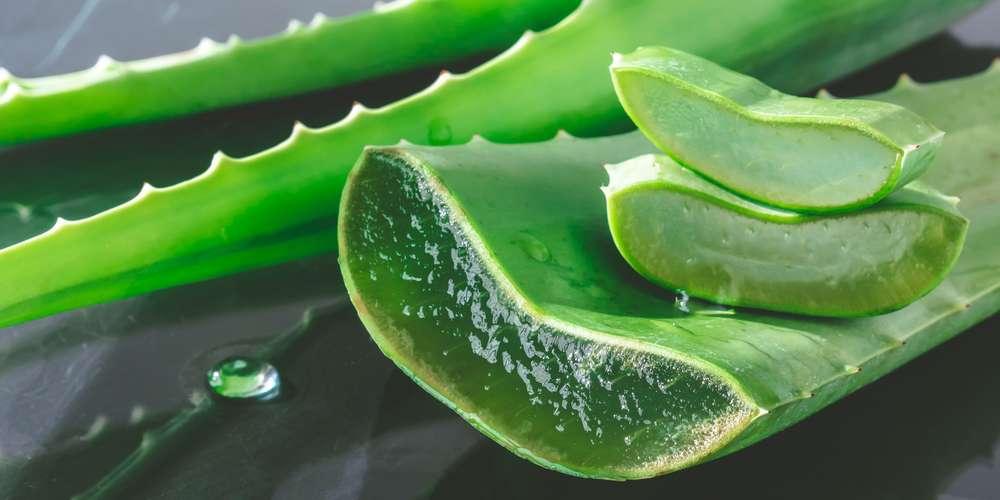
The ovarian cyst is a sac filled with fluid that develops on or in the ovary. Many women suffer from an ovarian cyst during their lifetime. Ovarian cysts, often painless, are very common and rarely serious.
Natural herbal treatment to cure ovarian cysts
If you are suffering from Polycystic Ovary Syndrome and are looking for a natural treatment that will cure you and prevent you from having the operation, this is the natural treatment for you . We offer you an all-natural treatment to cure your Ovarian Cysts. It is therefore made up of three elements: herbal teas, a poultice, and vaginal eggs. It is an effective, fast and long-lasting natural remedy which makes it possible to permanently eliminate cysts. All elements of our treatment are natural and herbal. Then trust us! So this is the secret to curing ovarian cysts without surgery. Click on the image below to discover our natural treatment
TEL / WHATSAPP: 00229 99 546 463
Aloe is a popular herb among people that has real healing properties, including with cysts. In addition, the plant is widely used in traditional medicine, which once again proves its effectiveness. Aloe is considered an African herb and contains a large number of useful vitamins and minerals, as well as natural antioxidants. The plant has gained popularity and is actively used for various diseases. But what effect does the use of aloe with a cyst have - what are the recipes for it, and how effective is the plant in treating cysts? Let's answer these questions in order!
The aloe with a cyst is most often used in two forms - juice, tincture. Aloe tinctures are used for migraines, colds, muscle injuries, skin damage. However, the main direction where aloe is actively used is the healing of benign tumors - cysts.
Properties of aloe vera
In general, speaking of abstract cysts of our subject, the leaves of the plant contain useful substances that positively affect the condition of the human body. Aloe affects a person as follows:
- suppresses inflammation;
- normalizes the gastrointestinal tract;
- strengthens the immune system;
- helps strengthen nails and hair;
- lowers cholesterol ;
- improves metabolism;
- contributes to the treatment of gynecological diseases.
Aloe with ovarian cyst
Ovarian cyst - a disease in the field of gynecology, characterized by the formation of hollow tissue on the ovary and the accumulation of fluid inside. According to statistics, a modern woman is more prone to the formation of cysts than our parents and grandmothers.
A cyst on the ovary can manifest itself in different ways, but most often women under the age of 55 suffer from this disease. Large cysts can cause infertility , which is very dangerous for young girls.
Nowadays, when an ovarian cyst is detected, it is not necessary to perform an operation. This disease can be cured both with the help of medicines and with the help of traditional medicine.
The most effective treatments for aloe cysts are as follows:
- Aloe juice pads for cysts. The recipe is simple: to do this, moisten the swabs in freshly squeezed aloe and onion juice, mixing them in a ratio of 1 to 1. Such treatment should be carried out until the cyst ovarian is completely resorbed.
- Medicinal ointment with aloe vera . To prepare a healing ointment, we need two teaspoons of wax and aloe juice, 150 grams of sea buckthorn oil and 3 hard-boiled eggs. Wax and oil should be brought to a boil over low heat. After boiling in the mass, it is necessary to pour aloe juice and add crushed egg yolks. After that, the whole consistency should be left on low heat for 3 minutes. After complete cooling, the ointment should be applied to the tampon and inserted into the vagina. This procedure should be done before bedtime. Treatment is carried out until full recovery.
- Aloe tincture against a cyst . To prepare the tincture, you need to mix the juice and honey in equal proportions, then pour the cahors and mix well. The resulting tincture should be placed in a cold place for a week. Take this tool before each meal. The duration of treatment depends on the size of the cyst and lasts an average of 21 days. After completing a course, you need to take a break.
- Aloe injections . Injections containing aloe extract are made with cystic formations of any kind, contributing to the rapid recovery and resorption of the cyst. In addition, injections with the addition of aloe are prescribed after surgical removal of cysts of the kidneys and ovaries, as they contribute to the accelerated regeneration of damaged tissues.
Aloe with a kidney cyst
Kidney cyst is a dangerous disease caused by inflammatory processes in this organ. In more severe cases of the disease, the kidney may be removed along with a benign tumor. Typically, a kidney tumor is diagnosed after an ultrasound , and the sooner the cystic mass can be removed, the easier it will be to treat.
To avoid surgery in the treatment of kidney cysts, people often resort to folk recipes, the main ingredient of which is aloe.
The only remedy that can be prepared from aloe with a kidney cyst is tincture. To prepare the tincture we need:
- 250 grams of natural honey;
- 100 ml of aloe juice;
- 100 grams of chaga mushroom;
- 30 grammes de dogrose, hypericum, absinthe;
- 20 grams of pine buds;
- 300 grams of natural or brandy Cahors.
First, you need to grind the chaga mushroom and soak it in water. After that, fill it with two liters of water and add all the herbs listed. After that, the mixture should be put on a small fire and boiled for an hour and a half. After boiling, the mixture is removed from the heat and cooled.
The cooled broth is placed in a warm place for 24 hours. After that, the tincture should be filtered through a small gauze and add honey and Cahors to it. Tincture before meals is taken in 1 tbsp. The duration of the procedure is 21 days with a mandatory break between courses of 1 week.
Contraindications to the use of aloe
While the healing properties of aloe with a cyst are truly amazing, this herb still has a number of negative effects. In some women, after applying aloe, dysbiosis may form, which disrupts the work of the vaginal microflora.
In some cases, when using tampons and ointments in a woman, her stomach may hurt and itch, or the inflammatory process may begin. At the slightest suspicion of complications, you should immediately see a doctor for help.
It is strictly forbidden to use aloe in such conditions:
- with diseases of the bladder;
- tuberculosis
- chronic diseases of the gastrointestinal tract;
- during pregnancy;
- with hypertension;
- with individual intolerance to aloe extract.
- - -
Has the LESPLANTESAFRICAINES team answered all your questions through this article?
Leave us a comment in response or contact us via WhatsApp at +229 99 546 463.
- - -
